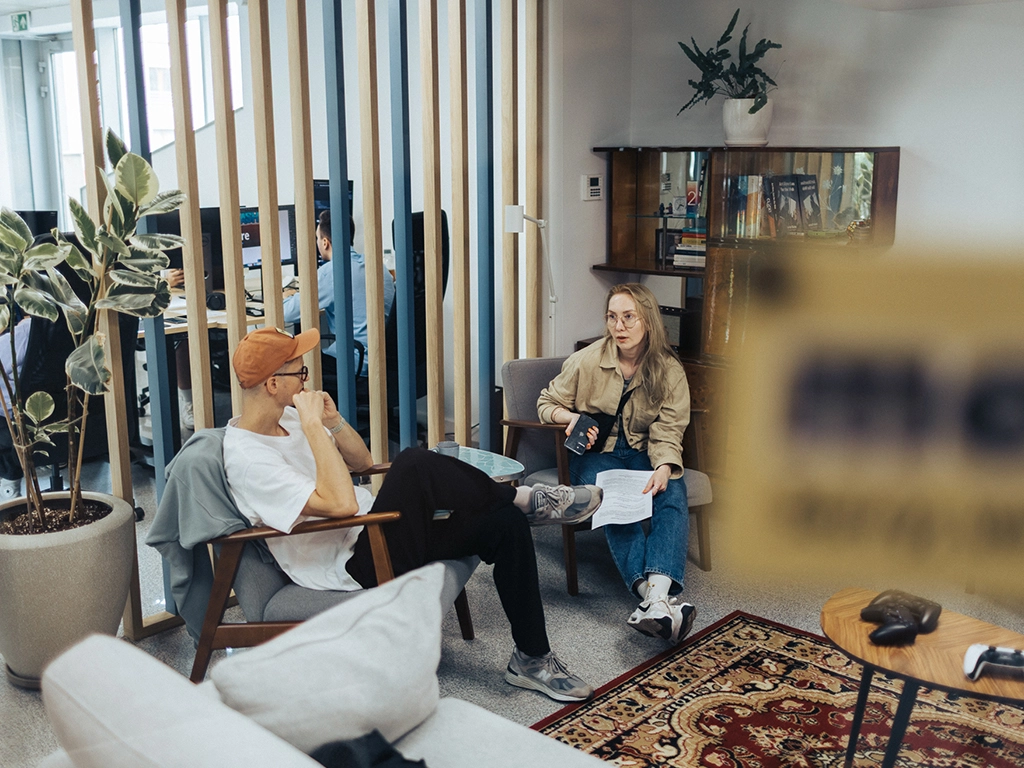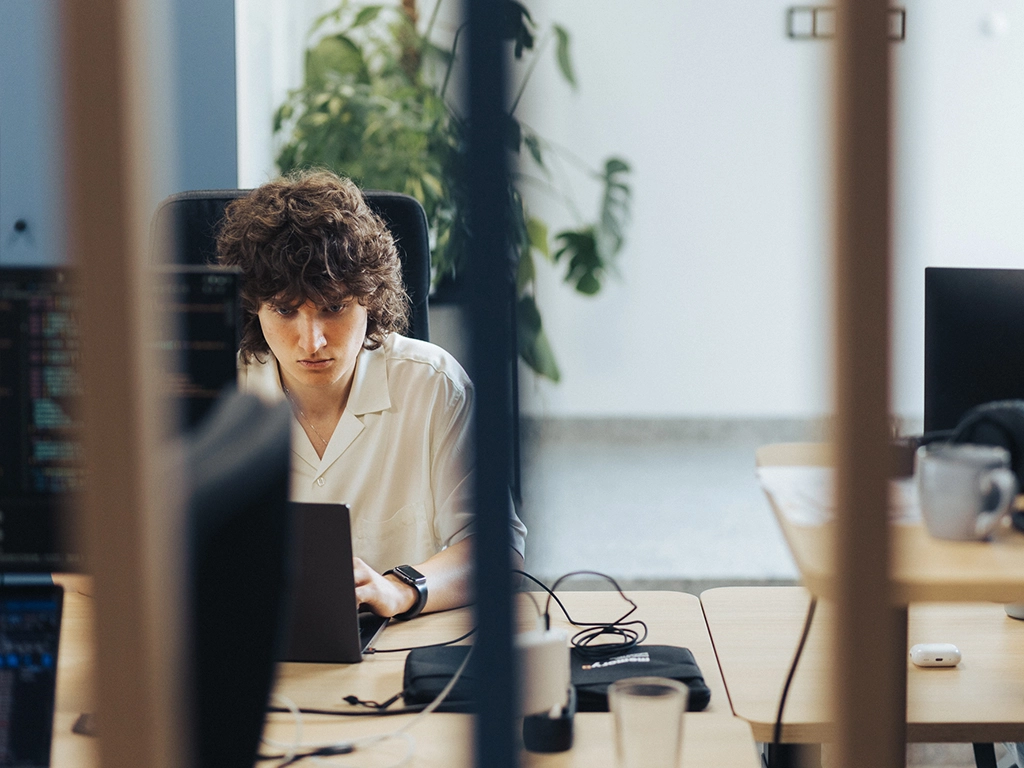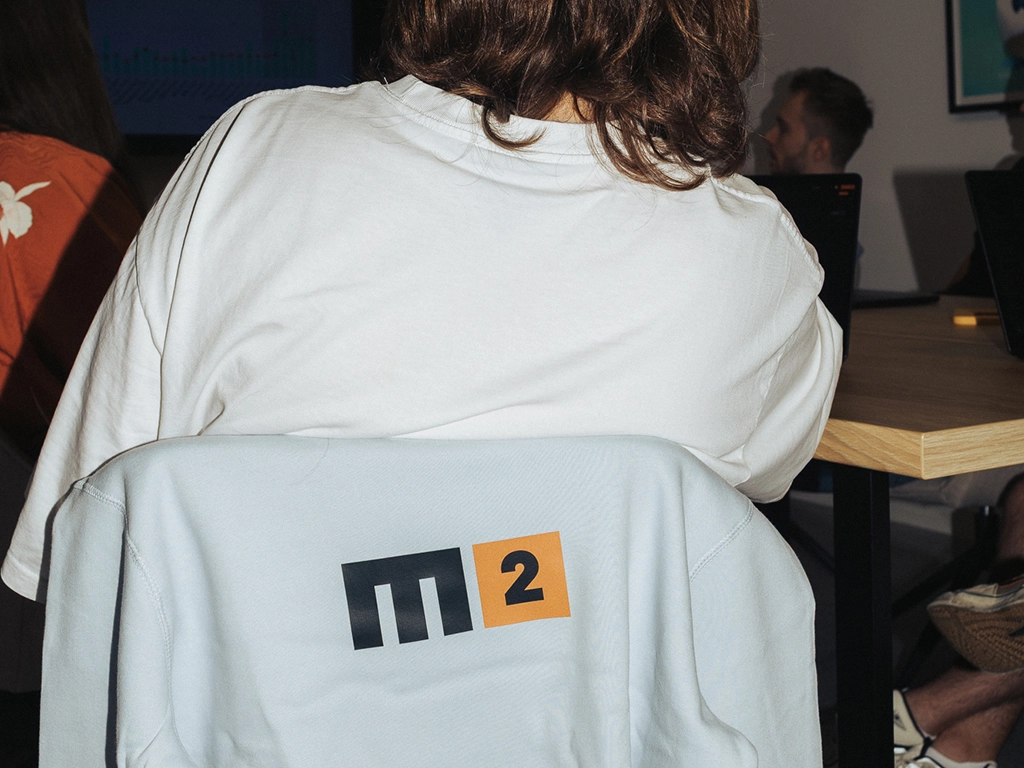mHealth: How Mobile Devices Can Change Healthcare
Table of Contents
Mobile devices, apps, and wearables are revolutionizing healthcare, empowering patients and allowing providers to deliver faster, smarter care. From telehealth consultations to fitness trackers, mHealth technologies and mobile health apps are making healthcare more accessible and efficient for everyone. Mobile technology in healthcare is bridging gaps, improving patient engagement, and supporting better health outcomes.
But it’s not without challenges. While mobile health tools improve care delivery and patient engagement, concerns like data privacy, security, and digital accessibility remain. This article explores the benefits, risks, and trends shaping mHealth technologies — and how mobile technology in healthcare is transforming patient care today and in the future.
What is Mobile Healthcare (mHealth)?
Mobile healthcare, or mHealth, is all about leveraging mobile technology, such as smartphones, tablets, and wearable healthcare tech, to support healthcare delivery, patient care, and overall wellness.
”The World Health Organization’s (WHO) definition of mHealth is "medical and public health practice supported by mobile devices," and that’s exactly what it is — bringing healthcare services to your fingertips through innovative tools and apps.
With mobile health, the way we interact with healthcare has completely transformed. Patients can now access medical care from virtually anywhere, whether it’s consulting a doctor through a telehealth app, tracking their fitness goals on a smartwatch, or monitoring chronic conditions using connected mobile medical technology.
But mHealth technology isn’t just about convenience for patients. For healthcare providers, it’s a game-changer, offering real-time access to medical records, diagnostic tools, and even advanced features like AI-driven analysis. Whether it’s remote patient monitoring, managing treatment adherence, or staying updated with the latest medical research, mobile technology in healthcare empowers professionals to make better decisions faster.
The rise of mobile health has given birth to two distinct yet interconnected areas:
- Devices, applications, and services specifically designed for patient care and treatment.
- Wearable technologies and apps focused on promoting healthy lifestyles and tracking fitness activities.
The Use of Mobile Devices in Healthcare
Mobile technology plays an essential role in modern healthcare by enhancing communication, allowing data collection, and supporting remote patient care. Whether it’s through smartphones, wearables, or connected medical devices, mobile medical technology is helping both patients and providers bridge gaps in care, making healthcare faster, smarter, and more convenient.
Here’s how mobile health devices are transforming healthcare:
- Telemedicine. Smartphones and tablets allow patients to consult with doctors remotely, saving time, reducing costs, and improving access to care, especially in underserved or rural areas.
- Electronic Health Records (EHR). Healthcare providers can access and update patient records in real time, allowing smoother workflows and more personalized care.
- AI-powered diagnostics. Mobile medical technology equipped with AI tools assists doctors in identifying health conditions quickly and accurately, improving diagnostic outcomes.
- Remote health monitoring. Devices like fitness trackers, blood pressure cuffs, and glucometers allow patients to monitor their health and share data with providers instantly.
Take wearable healthcare tech, for example. Tools like heart rate monitors, diabetes sensors, and pulse oximeters have made it possible for patients to keep track of their health metrics outside traditional clinical settings. This real-time data empowers individuals to make informed health decisions and allows healthcare professionals to monitor and manage conditions remotely.
The impact of digital health apps has also been monumental. During the COVID-19 pandemic, the number of medical app downloads surged by 65% globally as patients turned to technology for virtual consultations, symptom tracking, and health education. Patient portal apps have become a critical part of digital health, giving individuals access to test results, appointment scheduling, and direct communication with their doctors.
Mobile Health Apps
Mobile health apps are transforming healthcare by offering innovative tools to monitor health, improve communication, and enhance patient care. From simple wellness trackers to advanced diagnostic tools, these apps play a significant role in mHealth technologies and are redefining mobile healthcare solutions. Let’s take a look at some of them.
1. Healthcare Mobile Apps for Patients
Healthcare mobile apps for patients include tools like patient portal apps and virtual consultation platforms. For instance, apps such as HealthTap allow patients to view their medical records, book appointments, and connect directly with healthcare providers. These solutions make healthcare mobile and accessible, empowering patients to take control of their care and enhancing digital health outcomes.
2. Remote Monitoring Apps
Since the rise of wearable technology, mHealth tech has seen significant advancements, especially in remote monitoring. These apps connect to specialized medical devices to track blood glucose levels, oxygen saturation, heart rate, and blood pressure, offering a seamless mobile medical technology experience.
- Oura Ring: A game-changer in mHealth technologies, this wearable device tracks sleep, stress, blood oxygen, and heart rate. Its compatibility with iOS and Android highlights the versatility of mobile health apps.
- OMRON: A digital blood pressure monitor that connects to mobile devices for accurate tracking, eliminating the need for manual records. It’s a perfect blend of convenience and mobile in healthcare innovation.
- Veri: This compact glucose monitoring device tracks blood sugar levels and recommends dietary changes, supporting individuals with diabetes and metabolic issues.
3. Healthy Living Apps
Apps promoting healthy habits are a core component of digital health. They help you manage stress, track fitness goals, and optimize sleep.
- Calm: A popular wellness app that offers guided meditation, sleep tracking, and stress management tools, helping you maintain a healthy routine.
- Fitness Fantasy: A unique RPG game that combines fitness and fun, encouraging physical activity through gameplay. It’s a creative example of mobile health apps that promote wellness.
4. Clinical and Diagnostic Apps
For healthcare providers, mobile medical technology streamlines workflows and enhances clinical decision-making.
- Prevention TaskForce: An official US app offering screening and medication resources, supporting providers in delivering effective patient care.
- VisualDX: This AI-powered tool helps doctors diagnose diseases based on visual symptoms while fostering collaboration through case discussions.
5. Clinical Reference Apps
mHealth technologies also support medical professionals and students by providing detailed reference materials and tools.
PEPID is a comprehensive app featuring medical calculators, disease descriptions, and drug identifiers. It’s a valuable resource for expanding knowledge and ensuring accuracy in healthcare.
6. Productivity Apps
Productivity-focused healthcare mobile apps enhance efficiency for healthcare providers by managing schedules, improving communication, and supporting virtual consultations.
For example, HealthTap simplifies virtual care for both patients and doctors, showcasing the potential of mHealth tech to streamline workflows securely and efficiently.
Benefits of Mobile Devices in Healthcare
The use of mobile devices in healthcare is transforming how we access and deliver care. The benefits of mobile devices in healthcare include making services more accessible, improving provider efficiency, and empowering patients to take charge of their health.
1. Better Access to Care
Mobile tools like telehealth platforms and patient portal apps make it easier for patients to connect with healthcare providers, book appointments, and manage their medical information from anywhere. This is particularly valuable for those in rural or underserved areas who might struggle to visit a clinic in person.
2. Increased Provider Efficiency
For healthcare professionals, mobile technology streamlines workflows by reducing paperwork, allowing real-time updates to health records, and improving communication among care teams. Doctors, nurses, and specialists can collaborate more effectively, which leads to faster diagnoses and better care decisions.
3. Patient Empowerment
Mobile health benefits extend to patients who now have tools to monitor their health, track progress, and engage with providers. From fitness apps to connected devices like blood pressure monitors, individuals are more involved and informed than ever before.
4. Cost Savings
By reducing unnecessary visits, improving administrative efficiency, and enhancing communication, mobile medical technology helps lower healthcare costs for both providers and patients.
Risks of Mobile Devices in Healthcare
While the advantages of mobile devices in healthcare are clear, there are challenges to address. Understanding the risks of mobile devices in healthcare is key to ensuring they are used safely and effectively.
1. Data Privacy and Security
Sensitive health data stored on healthcare mobile tools is vulnerable to cyberattacks and breaches. A failure to safeguard this information can lead to identity theft, financial loss, or reputational damage. Providers must comply with strict regulations, such as HIPAA and GDPR, to keep patient data secure.
2. Digital Exclusion
Not everyone has access to smartphones or reliable internet, which can lead to mobile health benefits being out of reach for some. Elderly patients or those unfamiliar with technology may struggle to use mobile medical technology, creating gaps in care.
3. Technology Distractions
When relying heavily on mobile devices, healthcare providers may face challenges, such as constant notifications, multitasking pressures, and workflow disruptions. Balancing the use of mobile devices in healthcare with traditional care methods is crucial to avoid burnout or inefficiencies.
4. Integration Issues
Integrating mHealth technology with existing healthcare systems can be complex and costly. Problems like outdated infrastructure, data silos, and incompatible platforms can slow down implementation and limit its impact.
Who Can Benefit From mHealth Apps?
The possibilities of mobile health technology are vast, offering significant benefits for different user groups. From patients managing chronic conditions to healthcare professionals optimizing workflows, mHealth apps provide solutions tailored to various needs. Here’s a closer look at who can benefit the most from these technologies.
1. Patients With Chronic Diseases
For patients dealing with chronic illnesses, mobile health apps are game-changers. These apps empower users to monitor their health in real time, track vitals like blood pressure, and store essential medical data or images for healthcare professionals to access during emergencies.
Remote patient care is another advantage, especially for those who are bed-bound. Patients can use apps to schedule home healthcare visits and manage appointments with ease.
By leveraging mHealth technology, patients gain greater control over their condition while improving communication with their caretakers and medical teams.
2. Medical Students
Medical students often rely on apps to simplify their studies, and mHealth technologies can provide tremendous value here. From medical dictionaries to exam prep tools and patient data systems, apps can:
- Demonstrate how healthcare systems function.
- Offer organized, reliable sources of medical knowledge.
- Help students understand how to manage and store patient information.
Whether they’re learning about mobile devices in healthcare or gaining hands-on experience, these tools are an excellent addition to any student's toolkit.
3. Healthcare Professionals
Mobile devices and apps for healthcare professionals represent a major step forward in improving efficiency and accuracy. Examples of benefits include:
- Mobile medical technology for faster data analysis and digital imaging with lower error margins.
- Tools for mobile charting to track how illnesses impact mental and physical health.
- Improved communication with patients through patient portal apps and digital prescriptions.
These apps save valuable time, enhance decision-making, and streamline medical research processes.
4. Healthcare Organizations
Hospitals, clinics, and emergency services are increasingly adopting mobile technology in healthcare to automate processes and improve patient care.
mHealth apps can:
- Streamline appointment tracking, doctor schedules, and medical data storage.
- Enhance patient engagement with reminders for upcoming visits or treatments.
- Facilitate remote patient care and virtual healthcare, including digital prescriptions and telehealth.
By reducing administrative burdens, healthcare organizations can focus on what matters most — delivering quality care.
5. Everyday Users
You don’t need to be a patient or healthcare worker to benefit from mobile health solutions. Everyday users can leverage apps for proactive health management, including:
- Mood trackers and mental health support tools.
- Diet calculators and fitness monitors.
- Sleep pattern analyzers and lifestyle planners.
These apps promote healthier lifestyles, helping you improve your well-being without needing to visit a specialist.
Healthcare App Trends
The healthcare app market is evolving rapidly, with new trends reshaping how care is delivered and experienced. As technology advances, apps are becoming smarter, more intuitive, and increasingly essential for both patients and providers. Here are some key trends driving innovation in digital health:
1. AI-Powered Healthcare Solutions
Artificial intelligence is making healthcare apps smarter. AI-powered tools can analyze patient data, predict health trends, and assist in early disease detection. For example, apps using AI for symptom checkers or diagnostic support are revolutionizing how healthcare providers deliver timely and accurate care.
2. Wearable Integrations
The rise of wearable healthcare tech is transforming the role of mobile in healthcare. Apps that connect with devices like fitness trackers, glucose monitors, and smartwatches allow for real-time health monitoring. These integrations empower patients to manage their wellness proactively and give providers valuable insights into their condition.
3. Telehealth and Virtual Care
Telehealth remains a cornerstone of modern healthcare apps. Video consultations, virtual follow-ups, and real-time chats make care more accessible, particularly for patients in remote areas. Apps like HealthTap or Teladoc have demonstrated how healthcare mobile solutions bridge gaps in traditional care delivery.
4. Personalized Health Experiences
Patients now expect customized care. Apps use data from mHealth technologies to deliver tailored insights, treatment plans, and recommendations. Whether it’s fitness goals, diet plans, or medication reminders, personalization enhances engagement and improves outcomes.
5. Focus on Mental Health
Mental health apps are on the rise, addressing growing needs for stress management, therapy, and wellness support. Tools like Calm and Headspace highlight the importance of holistic health, offering resources for relaxation, mindfulness, and sleep improvement.
6. Enhanced Data Security
As reliance on mobile medical technology grows, so does the need for robust security. Apps are increasingly adopting encryption, biometric authentication, and HIPAA compliance to protect sensitive health information and build trust with users.
These trends show how healthcare mobile apps are becoming indispensable tools for delivering efficient, personalized, and accessible care. As technology continues to evolve, the future of mHealth tech holds even greater promise for patients and providers alike.
How to Develop a Healthcare App: mHealth App Development Guide
The mobile health industry is advancing rapidly, driven by evolving technology and growing awareness among patients. Today, mobile health apps are widely used by both healthcare providers and smartphone users. But what does it take to build a successful mHealth app?
Step 1. Product Discovery: Start With a Clear Idea and Audience
Every successful app starts with a strong idea and a well-defined target audience. Instead of trying to serve everyone at once, focus on a smaller, specific group first. Build a reliable Minimum Viable Product (MVP) before expanding your app with additional features or targeting a wider audience.
Step 2. Product Design: Balancing Utility and Usability
When designing a mobile health app, utility isn’t enough – it also needs to look professional and be easy to navigate. A clean, intuitive design builds trust and encourages regular use. Collaborating with UX/UI experts can ensure the app meets user expectations and healthcare standards while maintaining a seamless experience.
Step 3. Product Deployment: Promoting Your App to the Right Audience
Developing the app is just the beginning. The next step is getting it into the hands of users — and they will determine its success. For mHealth apps, partnering with healthcare professionals and organizations can be especially effective. If they see value in your app, they’re likely to recommend it to their patients or integrate it into their services.
Mobile App Development Life Cycle: 6 Stages & Process Flow
The Future of Mobile in Healthcare
The future of mobile in healthcare is undeniably promising. The global mHealth market was valued at $62.7 billion in 2023 and is expected to grow at a CAGR of 14.1% from 2024 to 2030. This growth highlights the rising demand for mobile health solutions, particularly in remote monitoring and patient-focused healthcare apps.
From advanced wearables like the Oura Ring to tools like Veri and HealthTap, mHealth technologies are revolutionizing care delivery, enhancing patient experiences, and optimizing clinical workflows.
As digital health evolves, now is the time to turn your healthcare app vision into reality. Memory2 can help you develop tailored, high-performing mobile health apps that position you at the forefront of this technological transformation.
FAQs on mHealth: How Mobile Devices Transform Healthcare
How should we adjust healthcare due to mobile access by patients?
Healthcare must adapt by implementing secure and user-friendly mobile platforms that provide patients with remote access to medical records, appointment scheduling, and communication with providers. This requires healthcare professionals to embrace mobile tools in their workflows, ensuring they can offer virtual consultations and real-time support. Patients, on the other hand, need education on how to use these technologies effectively to manage their health, improve engagement, and reduce hospital visits.
What are the privacy risks when using mobile devices in healthcare?
The main risks are data breaches and unauthorized access to sensitive patient information, often caused by weak encryption, insecure mobile apps, or device loss. Mobile devices can also be vulnerable to hacking if they lack proper security measures such as two-factor authentication or secure storage systems. Additionally, unregulated third-party apps may misuse patient data, highlighting the need for strict compliance with healthcare privacy laws like HIPAA or GDPR to ensure patient information remains protected.
How will technology change healthcare?
Technology will revolutionize healthcare by improving access, accuracy, and efficiency across the board. Innovations like AI and machine learning will enhance diagnostics and predictive analytics, allowing earlier detection of diseases. Telemedicine and mobile health apps will make care more accessible, particularly in remote areas, while automation will streamline administrative tasks, reducing physician workloads.
Additionally, wearable devices and IoT tools will allow real-time patient monitoring, helping to create personalized treatment plans and improving patient outcomes.
How might mobile health contribute to medicine?
Mobile health will play a significant role in medicine by enhancing access to care, improving chronic disease management, and enabling real-time patient monitoring. With tools like mobile apps and wearable devices, patients can track vital signs, manage medication schedules, and receive timely reminders for treatments.
Mobile health also allows for better communication between patients and providers, ensuring quicker responses to health concerns. These technologies improve healthcare efficiency, reduce the burden on hospitals, and promote proactive patient care, ultimately enhancing medical outcomes.
What is the effect of mobile phones on human health?
Mobile phones can positively impact health by improving access to medical information, supporting health monitoring apps, and facilitating communication with healthcare providers.
However, excessive use can have negative effects, such as eye strain from prolonged screen time, sleep disturbances caused by blue light exposure, and musculoskeletal pain due to poor posture while using devices. Psychological effects like increased stress or anxiety from overreliance on phones are also concerns. While mobile phones are valuable tools for improving health, balanced and mindful use is essential to avoid adverse effects.
Memory Squared
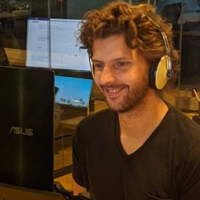
Trusted by both innovative startups and large international companies.
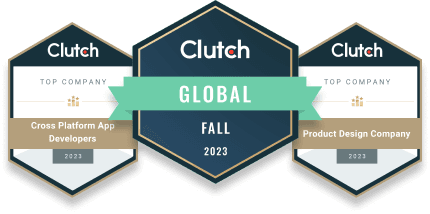
Awarded as one of the best 2024 software companies globally
What we do
We can cover the whole process and product development life cycle but we’re also open to sending our developers and designers on a mission to join your team. We’re comfortable working closely with business managers to creatively place digital products into their strategy.




